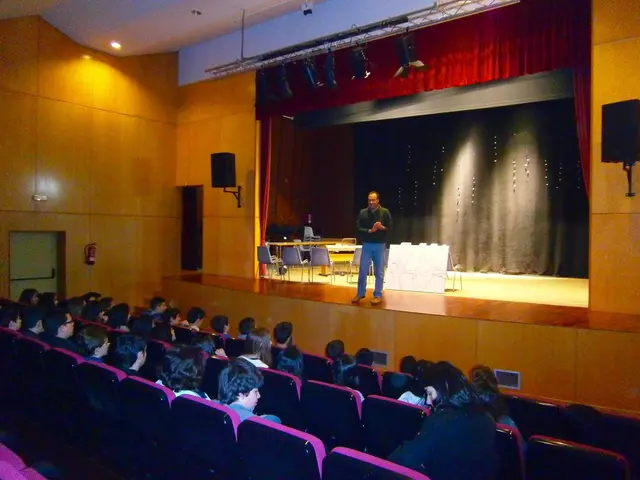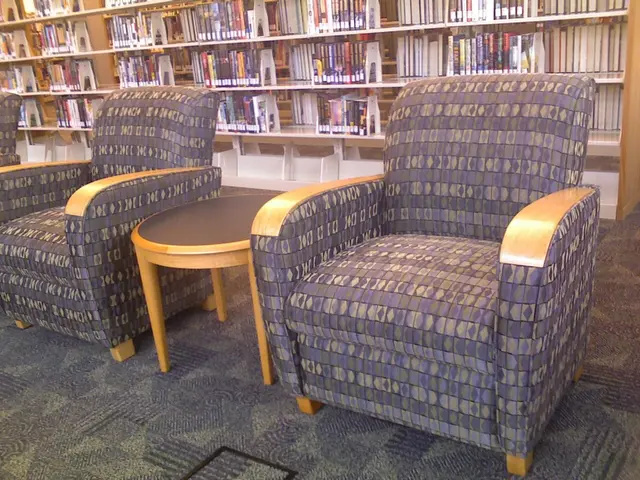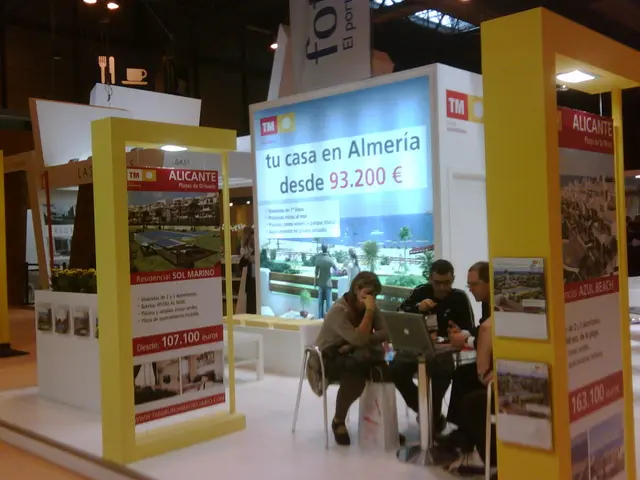Sports organizations voice concerns over community participation as costs for public sports facilities escalate, shifting from 'social justice' activities to decreased volunteerism.
In the city of Neuss, Germany, sports clubs are facing an uncertain future due to proposed usage fees and increased costs. Hermann-Josef Baaken, Chairman of TSV Norf, emphasises the importance of sports clubs in contributing to the common good and health.
The potential consequences of these changes are far-reaching. Increased financial burden could strain club budgets, especially for smaller or community-based clubs with limited revenue streams. Reduced participation might occur as increased costs make sports participation less affordable, potentially leading to a decrease in member numbers. Clubs might need to cut back on training sessions, youth programs, or maintenance to make ends meet. In extreme cases, some clubs could face closure or merger due to prolonged financial stress.
The impact on the community is also significant. Sports clubs often serve as social hubs, and their disappearance could affect community cohesion and youth engagement.
Sven Schumann, Chairman of SV Rosellen, warns that the introduction of usage fees would inevitably lead to an increase in membership fees and restrictions on investments in sports facilities. BV Weckhoven's business manager, Bernhard Sprenger, mentions a survey showing many overweight children in Weckhoven who urgently need to join a sports club. However, hall sports could become unaffordably expensive for BV Weckhoven, requiring an additional budget of 10,000 euros for usage fees.
Stephan Schorreck, chairman of Holzheimer SG, estimates that his club may incur additional costs of 7,000 to 10,000 euros, which could be covered with a membership fee increase. SVG Weissenberg's 2nd chairman, Andreas Bonnen, states that the city has been saving around 50,000 euros per year due to the club's self-administration.
Nadja Arvanitidis, Treasurer of DJK Rheinkraft Neuss, expresses concern that usage fees would burden sports clubs and their members, potentially threatening their existence and making sports offers unaffordable for many families with children. TuS Reuschenberg takes over the responsibility for its district sports facility in the evenings and on weekends, saving the city around 200,000 euros in personnel costs since 2011.
However, TuS Reuschenberg's contract may be modified due to an increase, which could almost double membership fees and potentially endanger handball. If this happens, the club may face an additional budget of 100,000 euros for hall fees alone.
TG Neuss chairman Mario Meyen estimates that the club may incur additional costs of around 70,000 to 80,000 euros. If the membership fee is increased by two to three euros per member per month, around 10% of members may cancel their membership, resulting in a loss of around 500 members. TG Neuss also provides services for refugees and people with low income, which could be affected by cost-cutting measures.
If the contracts between SVG Weissenberg and the city are terminated, the club may have to give up free offers, cooperation with kindergartens and schools. Siggi Willecke, Managing Director of Neusser Schwimm-Verein (NSV), mentions two proposed fee models that could cost up to 18,000 euros or 40,000 euros per year, potentially impacting high-performance sports and forcing cuts in courses for non-swimmers.
Despite these challenges, TSV Norf advocates for the full support of the city of Neuss and renovated sports facilities instead of fees that could lead to increased membership fees. Siggi Willecke also notes a potential loss of desire for voluntary work due to increased fees and financial burdens.
In conclusion, the proposed usage fees and increased costs could have a significant impact on sports clubs in Neuss, Germany. The specific financial impact and consequences would depend on several factors, including the size of the fee increases, how costs are passed on to members, availability of subsidies, and local government support. Detailed and specific data on the proposed fee changes in Neuss and their direct financial impact on sports clubs can be found in local government press releases, sports associations' statements in Neuss, or news coverage on the topic.
- A young man advocates for the importance of sports clubs in the city of Neuss, emphasizing their role in contributing to the common good and health.
- The financial burden on sports clubs could strain their budgets, with smaller clubs feeling the impact more due to limited revenue streams.
- The increased costs could make sports participation less affordable, potentially leading to a decrease in member numbers.
- Clubs may need to cut back on training sessions, youth programs, or maintenance to make ends meet.
- Some clubs could face closure or merger due to prolonged financial stress.
- The disappearance of sports clubs could affect community cohesion and youth engagement.
- Sven Schumann warns that the introduction of usage fees would lead to an increase in membership fees and restrictions on investments in sports facilities.
- BV Weckhoven's additional budget for usage fees could reach 10,000 euros.
- Stephan Schorreck estimates that his club may incur additional costs of 7,000 to 10,000 euros.
- SVG Weissenberg saves the city around 50,000 euros per year due to self-administration.
- Nadja Arvanitidis is concerned that usage fees could burden sports clubs and their members, potentially threatening their existence.
- TuS Reuschenberg has saved the city around 200,000 euros in personnel costs since 2011.
- TG Neuss may face an additional budget of 100,000 euros for hall fees alone.
- If certain contracts are modified, TG Neuss may lose around 500 members.
- TG Neuss offers services for refugees and people with low income, which could be affected by cost-cutting measures.
- If the contracts between SVG Weissenberg and the city are terminated, free offers and cooperation with kindergartens and schools may be given up.
- NSV could face costs of up to 18,000 or 40,000 euros per year, potentially impacting high-performance sports and courses for non-swimmers.
- TSV Norf calls for the full support of the city and renovated sports facilities instead of fees that could lead to increased membership fees.
- Siggi Willecke notes a potential loss of desire for voluntary work due to increased fees and financial burdens.
- The financial impact and consequences of the proposed usage fees would depend on several factors, including fee increases, passed costs, subsidies, and local government support.
- Detailed and specific data on the proposed fee changes in Neuss and their direct financial impact on sports clubs can be found in local government press releases, sports associations' statements, or news coverage.
- Entrepreneurship in the manufacturing industry could benefit from diversified investments in sports clubs.
- Finance professionals in the city could provide strategic advice to help clubs manage their finances and reduce costs.
- The energy sector could invest in energy-efficient facilities for sports clubs, improving their sustainability.
- Retail establishments could partner with sports clubs to provide discounts on sports equipment and apparel for members.
- A venture capital firm might invest in innovative smart home devices for sports facilities, modernizing their infrastructure.
- A lifestyle brand could sponsor a local sports club as part of its corporate social responsibility program.
- A small business specializing in interior design could redesign some sports facilities, showcasing its skills and portfolio.






